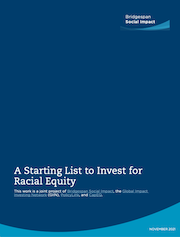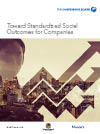Site Search
- resource provided by the Forum Network Knowledgebase.
Search Tip: Search with " " to find exact matches.
The Devils Youth Foundation announced today for the upcoming 2025-26 season that it has issued a record $1.3 million worth of grants supporting 35 local organizations and awarded ten high school students with a $5,000 scholarship each for the second annual Devils Youth Foundation Scholarship Program, in collaboration with New Jersey Devils Alumni. The Foundation continues to break its record of grant offerings annually.
The 2025-26 Grant Class is a diverse mix of returning and new partners, and the Foundation aims to foster innovation and collaboration within its grantee network. Each grant category has been designed to reflect a pillar of the Foundation: physically and mentally healthy kids, food and nutrition security, access to the arts, and getting kids active and moving. Through multi-year grant commitments and strategic partnerships, the Devils Youth Foundation will significantly impact the lives of over 86,000 youth and its support of community outreach programs throughout New Jersey.
“At the Devils Youth Foundation, our mission is rooted in strengthening the communities we serve,” said Allison Blitzer, Chair of the Devils Youth Foundation. “This growth reflects our ongoing commitment to creating meaningful, lasting value—ensuring that youth across the state have real access to physical and mental wellness, food and nutrition security, the arts, and education. By continuing to raise the bar, we are expanding our reach and helping to build healthier, more resilient communities for generations to come.”
Facing Our Future was a landmark initiative looking at the systemic, long term fiscal challenges facing all levels of government in New Jersey. It grew out of a 2010 briefing CNJG held for members that outlined how a Governor’s budget is annually crafted. CNJG leadership worked with members to convene a group of enthusiastic former government leaders. Their collective experience crossed party lines, and many of them had served multiple New Jersey governors. This Leadership Group included 4 former Attorney Generals, 3, former Commissioners, 2 former State Treasurers, a former Director of the State Senate and a former Chief Justice of the NJ Supreme Court, in addition to leading New Jersey researchers.
Facing Our Future became an independent, bipartisan effort under the auspices of CNJG. It has produced 3 different reports that centered on the same theme.
To influence systematic change in employment practices for individuals with disabilities, Kessler Foundation provided a $100,000 initial investment grant for the May launch of "Employing Abilities at Work Certificate" by SHRM Foundation, the 501c (3) philanthropic arm of the Society for Human Resource Management (SHRM).
Developed in partnership with the St. Augustine, FL-based consulting firm Global Disability Inclusion, the free certificate program aims to educate human resource (HR) professionals, people managers, and business leaders about the benefits of providing a more equitable, diverse workplace for individuals with disabilities. The program will prepare human resource professionals to confidently attract, hire, and retain this population successfully in the workplace.
According to CDC data, more than one in four (26 percent) of the U.S. population identifies with a disability. This community provides a large, unrealized pool of candidates consisting of considerable skills and strengths.
"People with disabilities have the talent and ability to fill the many employment opportunities in today's job marketplace," said Elaine E. Katz, MS, CCC-SLP, Senior Vice President, of Grantmaking and Communications, Kessler Foundation. "The new SHRM Foundation certificate program provides a roadmap for HR professionals to enable authentic disability inclusion, which allows all employees to feel welcome, included, and respected," she says, adding, "more importantly, this certificate is free, enabling SHRM members and others to effect change and growth in companies looking to diversify their workforce."
A total of $29,000 has been donated by Kearny Bank to the scholarship funds of 26 high schools, one local board of education, and two educational support organizations in nine New Jersey counties. The funds represent the latest contributions in a long-standing, annual scholarship program managed by the KearnyBank Foundation.
“We’re quite proud of our annual high school scholarship program, which highlights Kearny Bank’s deep commitment to supporting education throughout New Jersey,” says Kearny Bank President and CEO Craig Montanaro. “High school was anything but conventional for members of the class of 2021. We’re hoping our scholarship donations will play a part in enabling these students to have spectacular, post-pandemic collegiate experiences.”
Kessler Foundation said Wednesday that in 2022 it approved approximately $1 million in grants to support initiatives that promote the inclusion of people with disabilities in the workplace.
The majority of the funding was allocated into two categories: Signature Employment Grants and Community Employment Grants. The remaining funds were awarded to Foundation Directed Grants, Special Initiative Grants and Emergency Relief Grants.
“In our society, work often defines who we are, and how we are perceived by others,” Elaine Katz, senior vice president for grants and communications at Kessler Foundation, said. “Because participating in the workplace has many benefits, both tangible and intangible, Kessler Foundation focuses its grantmaking on expanding employment opportunities for people with disabilities, and addresses employment outcomes through its rehabilitation research.”
Today the Regional Foundation announced $4,750,000 in Implementation Grants to seven organizations throughout Eastern Pennsylvania, New Jersey, and Delaware. The Neighborhood Implementation Grants program supports comprehensive community development plans that target specific neighborhoods, are resident-driven, and equity focused. The multi-year funding is designed to assist the foundation’s grantee partners to start or sustain momentum in their comprehensive neighborhood revitalization initiatives.
“The grants we announced today are an exciting next step in the journey of the Regional Foundation,” stated Kevin Dow, Executive Director of the foundation. “These community investments will further the success of organizations leading resident engaged, neighborhood revitalization efforts with stable funding for at least five years. Three of the grants represent new implementation investments while four of the seven sustain long standing partnerships.”
The New Jersey Council for the Humanities (NJCH) has announced $272,408 in grant funding to 22 organizations across the state for Spring 2023.
The awards are split between 11 Incubation Grants and 11 Action Grants. Incubation Grants help organizations plan, research, develop, and prototype public humanities projects and events. Action Grants help organizations implement a wide array of humanities-based projects, including public programs, exhibitions, installations, tours and discussion groups.
“This grant funding represents support for a mixture of new projects and ongoing, important work,” said Carin Berkowitz, Ph.D., executive director of NJCH. “In that way, it mirrors the fundamental purpose of the humanities, examining our history and culture in ways that shape our current understanding of the world.”
The Healthcare Foundation of New Jersey (HFNJ) is pleased to announce that it has awarded $2,802,521 to twenty New Jersey nonprofit organizations in its third quarter grant cycle of 2023. The total includes renewal funding for 15 projects that had previously been awarded grants from HFNJ, and first-time funding for five new projects.
The projects reflect the many diverse areas in which HFNJ works to fulfill its mission of improving the health and well-being of individuals in Newark and its environs and the Jewish community of Greater MetroWest, NJ. Programs providing vision care for children; dental care for veterans; care for individuals experiencing homelessness; the provision of healthy foods; and more will be supported by the grants awarded this quarter.
Panasonic today announced the Panasonic Foundation, in partnership with the Community Foundation of New Jersey (CFNJ), has allocated four $25,000 Challenge Grants to nonprofit organizations dedicated to advancing STEAM education in Newark, NJ. The select recipients of this funding are After School All Stars, the Trust for Public Land, Students 2 Science, and Liberty Science Center.
With funding from the Challenge Grants, the select nonprofit partners will continue to advance and develop accessible STEAM education programs with the goal of improving education and workforce outcomes for Newark students.
“We are thrilled to award Challenge Grants to nonprofits dedicated to inspiring and preparing the next generation of leaders. These grants underscore our commitment to fostering accessible STEAM education, propelling Newark students toward brighter educational and workforce opportunities,” said Alejandra Ceja, Vice President of Social Impact and Inclusion at Panasonic.
Looking to improve the collection and sharing of philanthropic data, the Foundation Center and the United Philanthropy Forum (of which CNJG is a member) have entered into a partnership. The partnership will establish platforms and systems for collecting data contributed by CNJG members and other foundations throughout the country to aggregate and report on the philanthropic sector. Plans include ways to standardize and centralize giving data, reporting on funding patterns, and data visualization tools to better communication the sector’s impact. This partnership will give us better ways of illustrating the value of philanthropy in our regions and help us to inform funding decisions and track trends.
For more information, please visit the United Philanthropy Forum website.
The F.M. Kirby Foundation in Morristown, New Jersey, has announced that it awarded 266 grants totaling more than $16.8 million in 2024, an increase of over 9 percent year-over-year.
Grants were awarded to organizations working in the areas of education ($4.4 million), human services ($4 million), health ($2.7 million), arts, culture, and humanities ($2.4 million), environment and animals ($1.7 million), public affairs ($1.2 million), and religion ($127,500). More than half the grants (56 percent) were provided as general operating support, and 108 grants (40.6 percent) were awarded to organizations that have been Kirby’s funding partners for more than 25 years. Grants awarded in New Jersey and North Carolina—the foundation’s primary geographic areas of interest—accounted for $10 million in support, nearly 60 percent of all funding
The New Jersey State Council on the Arts awarded more than $29 million in grants to support nearly 1,000 arts organizations, projects, and artists throughout the state. The grants were approved earlier today at the Council's 59th Annual Meeting in Trenton, which featured a special performance by Hadassah Broughton, the 2025 NJ Poetry Out Loud State Champion.
State funding for the Arts Council comes from a portion of the revenue generated through the State’s Hotel/Motel Occupancy Fee, and supports arts activity in all 21 counties. As the largest funder of the arts in New Jersey, Council funding supports critical operating grants for nonprofits, and key initiatives in arts education, creative aging, and economic and community development.

Liberation Ventures and the Blueprint Steering Committee released the Reparations Grantmaking Blueprint — a 10-year funding vision and strategy to make reparations common sense and common place in America. Co-created by movement leaders from across the country, this Blueprint represents the collective wisdom, dreams, and strategic insights of dozens of activists who have dedicated their lives to advancing racial repair in America.

This work is a joint project of Bridgespan Social Impact, the Global Impact Investing Network (GIIN), PolicyLink, and CapEQ.
Since the social unrest over racial injustice in the summer of 2020, philanthropists, corporations, and impact investors across the United States pledged to invest billions of dollars to advance racial equity. However, recent scrutiny of those commitments reveals that the majority of those dollars remain on the sidelines.
A common hypothesis for the shortfall is the lack of investable “shovel-ready” opportunities. But Bridgespan Social Impact has formally and informally advised organizations seeking to invest for racial equity over the years, and found that hypothesis to be patently untrue. To make the case, Bridgespan is publishing this list of racial-equity funds that emerged from our experience, at the request of multiple funds and potential investors, and alongside the launch of a new racial-equity theme in the IRIS+ family of impact measurement and management guides. It comprises more than 160 funds that explicitly seek to improve the livelihoods of individuals who are Black, Indigenous, and people of color (BIPOC) and their communities. And we’re not done yet.
What is racial-equity investing?
In putting together this list, we chose to characterize “racial-equity investing” as directing capital toward creating equitable opportunities for BIPOC individuals and communities. That often requires shifting decision-making power and redefining risk so that capital flows more freely in service of those opportunities.
Sourcing these funds, we uncovered dozens of creative financing vehicles aimed at building power, creating economic opportunity, and improving livelihoods for communities of color.

A new pilot study from The Conference Board and the Impact Genome Project® (IGP) introduces standardized social outcomes to help measure and compare the performance of societal investments. The standardized outcomes allow for benchmark metrics, including efficacy rates and cost per outcome. The study used data from 16 companies whose funding contributed to nearly 650 nonprofit programs. The benchmarks provide new insights into the effectiveness of corporate societal investments.



